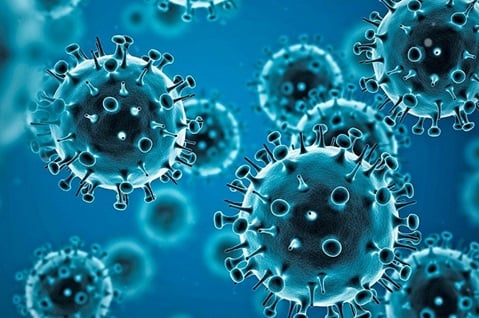
Introduction:
In December 2019, the world was introduced to a new coronavirus, later named SARS-CoV-2, which causes the illness COVID-19. Initially identified in Wuhan, China, this virus quickly spread globally, leading to a pandemic declaration by the World Health Organization (WHO) in March 2020. Since then, the coronavirus has significantly impacted every aspect of life, from health to economics, education, and beyond. Let's delve into the multifaceted dimensions of this ongoing battle against the coronavirus pandemic.
**Health Impacts**
At its core, the coronavirus pandemic is a health crisis. COVID-19 has proven to be highly contagious, spreading primarily through respiratory droplets when an infected person talks, coughs, or sneezes. While many infected individuals experience mild symptoms or remain asymptomatic, others face severe illness, including pneumonia and acute respiratory distress syndrome. Vulnerable populations, such as the elderly and those with underlying health conditions, are particularly at risk of developing serious complications.
The rapid transmission of the virus has overwhelmed healthcare systems worldwide. Hospitals have faced shortages of essential medical supplies, intensive care unit beds, and ventilators. Healthcare workers have been on the front lines, risking their lives to care for the sick while facing burnout and mental health challenges.
**Economic Fallout**
Beyond its toll on public health, the coronavirus pandemic has triggered an unprecedented economic crisis. Lockdowns, travel restrictions, and social distancing measures have disrupted businesses and industries globally. Small businesses, in particular, have struggled to stay afloat, with many facing closures and layoffs.

Job losses have soared, leading to widespread unemployment and financial instability for millions of people. Governments have implemented stimulus packages and relief efforts to mitigate the economic fallout, but recovery remains slow and uneven across different sectors and regions.
**Educational Disruption**
The pandemic has also upended education systems worldwide. Schools and universities have closed their doors or transitioned to remote learning to curb the spread of the virus. While online education has enabled continuity in learning, it has also exacerbated existing inequalities. Not all students have access to the necessary technology or internet connectivity for remote learning, widening the educational divide.
Furthermore, the closure of schools has had ripple effects on students' mental health, social development, and access to essential services like school meals and mental health support.
**Vaccine Development and Deployment**
Amidst the challenges posed by the pandemic, there has been a beacon of hope: the development and deployment of COVID-19 vaccines. Scientists and pharmaceutical companies worked tirelessly to develop safe and effective vaccines in record time. Several vaccines, including those developed by Pfizer-BioNTech, Moderna, and AstraZeneca, have received emergency use authorization and have been rolled out globally.
Vaccination campaigns have been underway in many countries, prioritizing healthcare workers, the elderly, and other high-risk groups. However, vaccine distribution has been marred by logistical challenges, supply chain issues, and vaccine hesitancy in some communities.
**The Role of Public Health Measures**
While vaccines offer a pathway out of the pandemic, public health measures remain crucial in controlling the spread of the virus. Strategies such as mask-wearing, hand hygiene, social distancing, and quarantine measures have proven effective in reducing transmission rates.
However, compliance with these measures has varied widely, influenced by factors such as government policies, public trust in institutions, and individual attitudes and behaviors. Clear and consistent communication from public health authorities is essential in fostering adherence to these measures and combating misinformation.
**Global Cooperation and Solidarity**
The pandemic has underscored the interconnectedness of the global community and the need for international cooperation in addressing shared challenges. Multilateral organizations such as the WHO have played a central role in coordinating the global response to the pandemic, facilitating information sharing, resource allocation, and collaboration among countries.
Furthermore, initiatives such as COVAX, a global vaccine-sharing program, aim to ensure equitable access to vaccines for all countries, regardless of their income levels. However, challenges remain in ensuring fair and equitable distribution of vaccines, with wealthier nations securing the majority of available doses.
**Looking Ahead**
As the world continues to grapple with the coronavirus pandemic, it is essential to learn from the experiences of the past and adapt strategies accordingly. Strengthening healthcare systems, investing in pandemic preparedness, and addressing underlying social and economic disparities are critical for building resilience against future health crises.
Moreover, the pandemic has highlighted the importance of solidarity, compassion, and collective action in overcoming global challenges. By working together and prioritizing the common good, we can emerge from this crisis stronger and more resilient than before.
Conclusion:
The coronavirus pandemic has reshaped the world in profound ways, touching every aspect of human life. While the road ahead remains uncertain, there is hope on the horizon as we continue to navigate this unprecedented challenge with resilience, determination, and solidarity.



You must be logged in to post a comment.